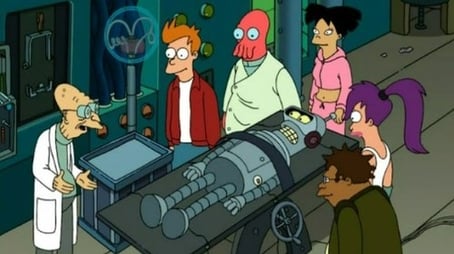
Sorry, we have not watched this yet.

When the Professor fine tunes his "What-If" machine, Bender discovers what it would be like if he were human, Fry discovers what it would be like if life were more like a video game, and Leela discovers what it would be like if she found her true home.
Sorry, we have not watched this yet.